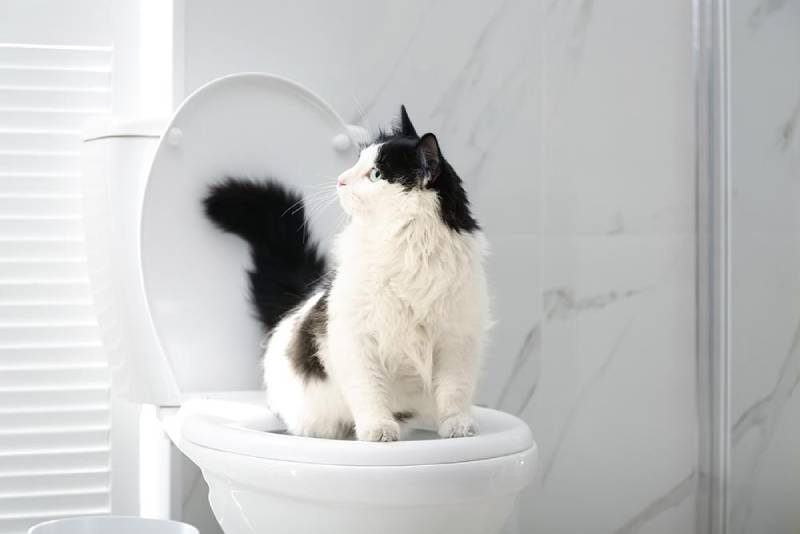What're your concepts about Can You Flush Cat Poop Down The Toilet??

Introduction
As feline proprietors, it's essential to be mindful of just how we dispose of our feline pals' waste. While it may seem hassle-free to flush feline poop down the commode, this method can have damaging effects for both the environment and human health.
Ecological Impact
Purging pet cat poop presents dangerous pathogens and bloodsuckers right into the water, posturing a substantial threat to aquatic ecosystems. These impurities can negatively affect aquatic life and concession water quality.
Wellness Risks
In addition to environmental problems, flushing cat waste can also position health risks to humans. Pet cat feces might include Toxoplasma gondii, a parasite that can cause toxoplasmosis-- a possibly extreme disease, specifically for expectant females and individuals with damaged immune systems.
Alternatives to Flushing
Fortunately, there are more secure and extra accountable ways to throw away feline poop. Think about the adhering to choices:
1. Scoop and Dispose in Trash
The most typical method of getting rid of pet cat poop is to scoop it right into an eco-friendly bag and throw it in the trash. Be sure to use a devoted litter inside story and take care of the waste immediately.
2. Use Biodegradable Litter
Opt for naturally degradable cat clutter made from materials such as corn or wheat. These litters are environmentally friendly and can be securely thrown away in the trash.
3. Hide in the Yard
If you have a yard, take into consideration hiding cat waste in a marked area far from veggie yards and water resources. Be sure to dig deep adequate to avoid contamination of groundwater.
4. Set Up a Pet Waste Disposal System
Invest in a pet waste disposal system particularly designed for feline waste. These systems use enzymes to break down the waste, lowering smell and ecological effect.
Final thought
Liable family pet ownership extends past offering food and sanctuary-- it additionally involves appropriate waste monitoring. By refraining from flushing cat poop down the commode and choosing alternate disposal approaches, we can reduce our ecological impact and secure human health.
Why Can’t I Flush Cat Poop?
It Spreads a Parasite
Cats are frequently infected with a parasite called toxoplasma gondii. The parasite causes an infection called toxoplasmosis. It is usually harmless to cats. The parasite only uses cat poop as a host for its eggs. Otherwise, the cat’s immune system usually keeps the infection at low enough levels to maintain its own health. But it does not stop the develop of eggs. These eggs are tiny and surprisingly tough. They may survive for a year before they begin to grow. But that’s the problem.
Our wastewater system is not designed to deal with toxoplasmosis eggs. Instead, most eggs will flush from your toilet into sewers and wastewater management plants. After the sewage is treated for many other harmful things in it, it is typically released into local rivers, lakes, or oceans. Here, the toxoplasmosis eggs can find new hosts, including starfish, crabs, otters, and many other wildlife. For many, this is a significant risk to their health. Toxoplasmosis can also end up infecting water sources that are important for agriculture, which means our deer, pigs, and sheep can get infected too.
Is There Risk to Humans?
There can be a risk to human life from flushing cat poop down the toilet. If you do so, the parasites from your cat’s poop can end up in shellfish, game animals, or livestock. If this meat is then served raw or undercooked, the people who eat it can get sick.
In fact, according to the CDC, 40 million people in the United States are infected with toxoplasma gondii. They get it from exposure to infected seafood, or from some kind of cat poop contamination, like drinking from a stream that is contaminated or touching anything that has come into contact with cat poop. That includes just cleaning a cat litter box.
Most people who get infected with these parasites will not develop any symptoms. However, for pregnant women or for those with compromised immune systems, the parasite can cause severe health problems.
How to Handle Cat Poop
The best way to handle cat poop is actually to clean the box more often. The eggs that the parasite sheds will not become active until one to five days after the cat poops. That means that if you clean daily, you’re much less likely to come into direct contact with infectious eggs.
That said, always dispose of cat poop in the garbage and not down the toilet. Wash your hands before and after you clean the litter box, and bring the bag of poop right outside to your garbage bins.
https://trenchlesssolutionsusa.com/why-cant-i-flush-cat-poop/

I'm just very involved in Can You Flush Cat Poop Down The Toilet? and I hope you enjoyed reading our post. Enjoyed our article? Please share it. Let other people discover it. I take joy in reading our article about How to Dispose of Cat Poop and Litter Without Plastic Bags.
Call Today